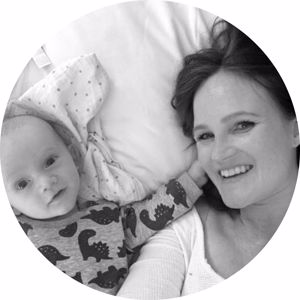When we’re pregnant it’s easy to get wrapped up in birth plans and labour techniques and almost forget what comes next — bringing home a tiny new human to care for! Those first few days and weeks are magical. But they can also be really, really hard.
At Wish I'd Known, we crowdsource real experiences – anonymously – from a large group of parents of 0–3-year-olds. And we’ve learnt a lot about the nuances of newborn life.
Here are some insights into lesser talked about, yet common, experiences that might otherwise catch you off guard as you navigate new parenthood.
Feeling All the Feels When You’re Alone With Your Baby Is Totally Normal
Once the epic event of birth is over, getting some peace and quiet for the first time at home can feel huge. Whether that’s being discharged from the hospital after a long stay, or having the professionals leave after a home birth.
We've learned that while 60% of new parents feel excited, nearly just as many are also anxious or overwhelmed. It's a significant life shift, so it's completely okay to feel this spectrum of emotions.
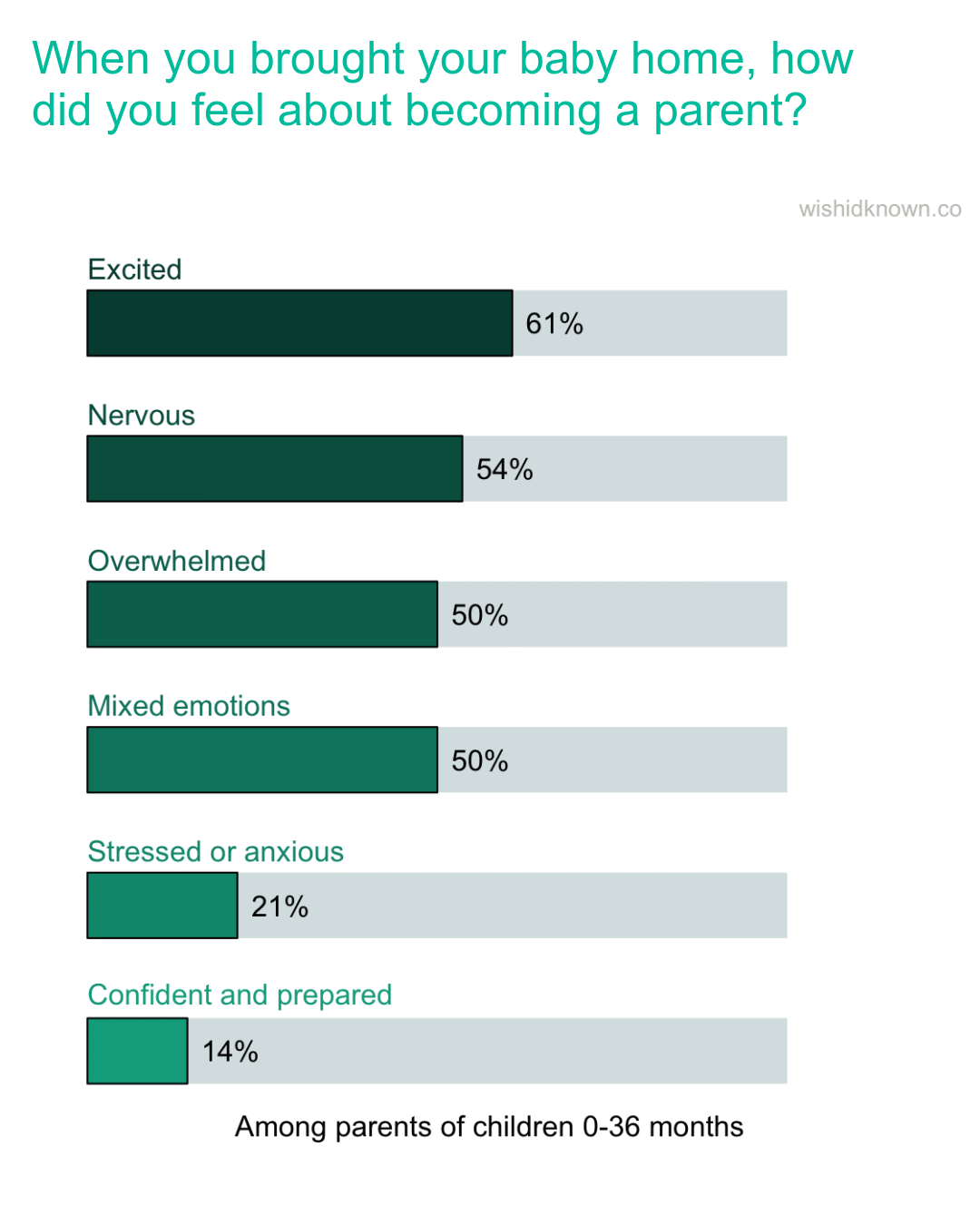
NICU Visits Are More Common Than You Might Expect
The chances of a newborn being admitted to the Neonatal Intensive Care Unit (NICU) can vary widely based on several factors, including prematurity, complications during birth, congenital anomalies, and other health issues.
UK statistics show that 10-15% of newborns require care in the NICU, making it a relatively common feature of neonatal care for tens of thousands of parents each year. That doesn’t make it any less challenging to experience, but it can be even harder if you aren’t prepared for the possibility. And it seems two-thirds of us weren’t.
While most families will not experience a NICU stay, the chances are higher than people might anticipate, underscoring the need for increased awareness and preparation for new parents.
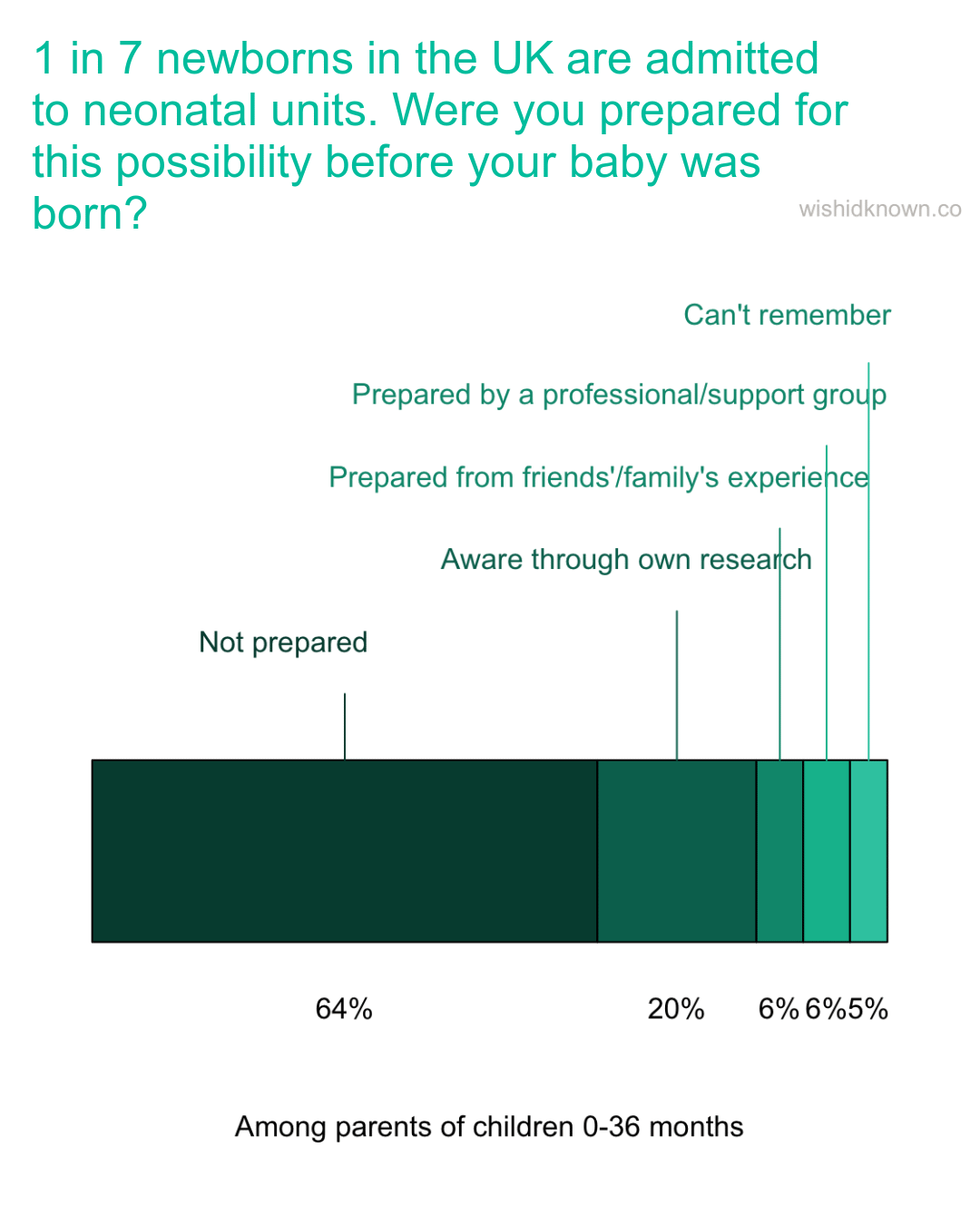
Your Newborn’s Temperament Isn’t Entirely in Your Hands
Is it nature or nurture, or a bit of both? This question fascinates us all. We found that the majority of parents (nearly three quarters) across all age groups believe that a bit of both - i.e. a combination of nature and nurture.
Interestingly, no parents felt that it was down purely to nurture. Something to take comfort from in those ‘is it my fault?’ moments.
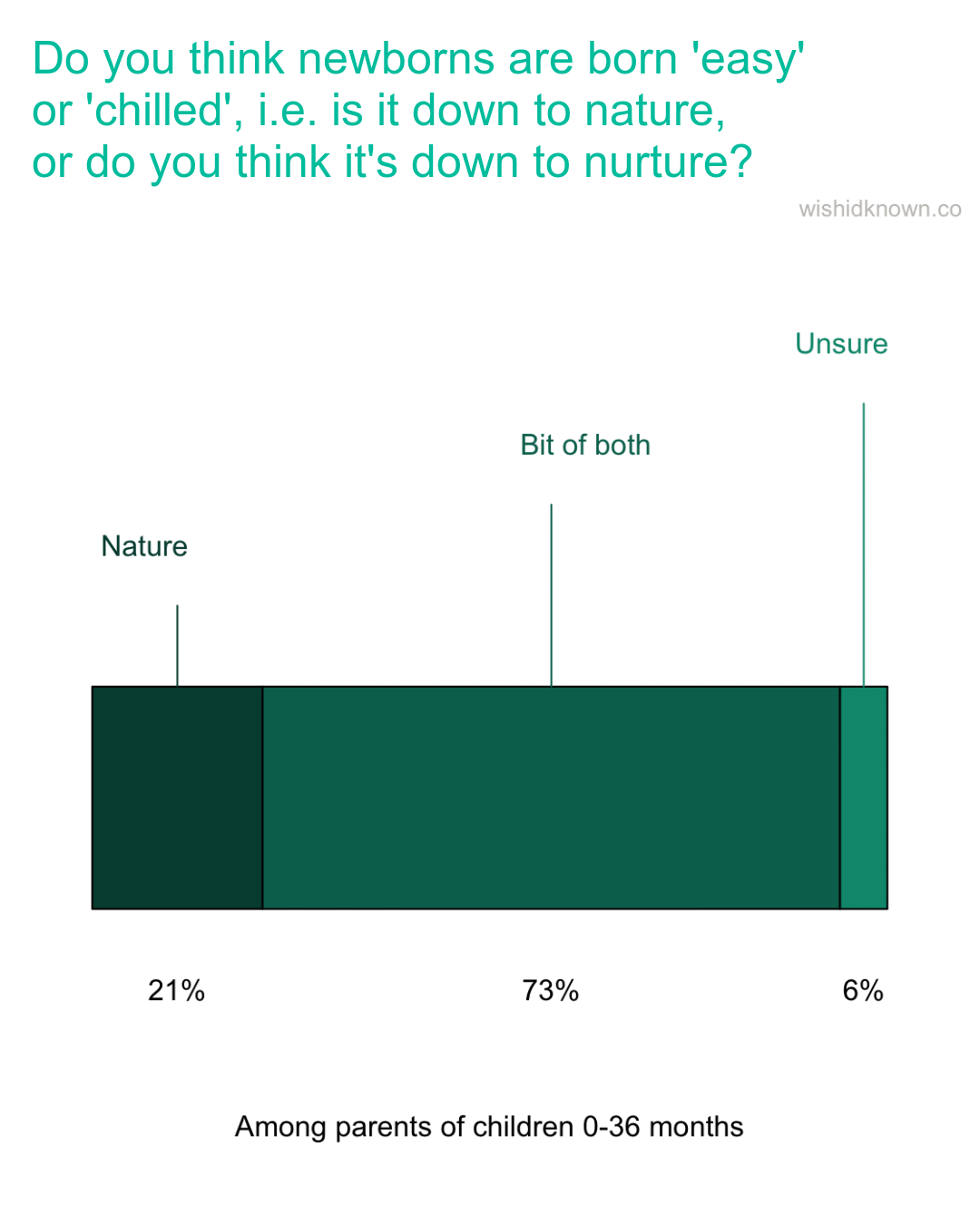
‘Phantom’ Cries and Intrusive Thoughts Are Part of the Package
With such profound changes going on physically and emotionally after having a child, perhaps it’s no wonder our brains start playing a few tricks on us.
Hearing 'phantom crying' is something nearly two-thirds of parents in our community said they’ve experienced. It can make us feel like we're going a bit mad, whisking us from zero to a hundred as we rush to check on our babies, only to find they're perfectly fine. Only a small proportion of parents (around 1 in 7) say they've never experienced it at all. It's a quirky part of the parenting journey that shows just how attuned we become to our children's needs.
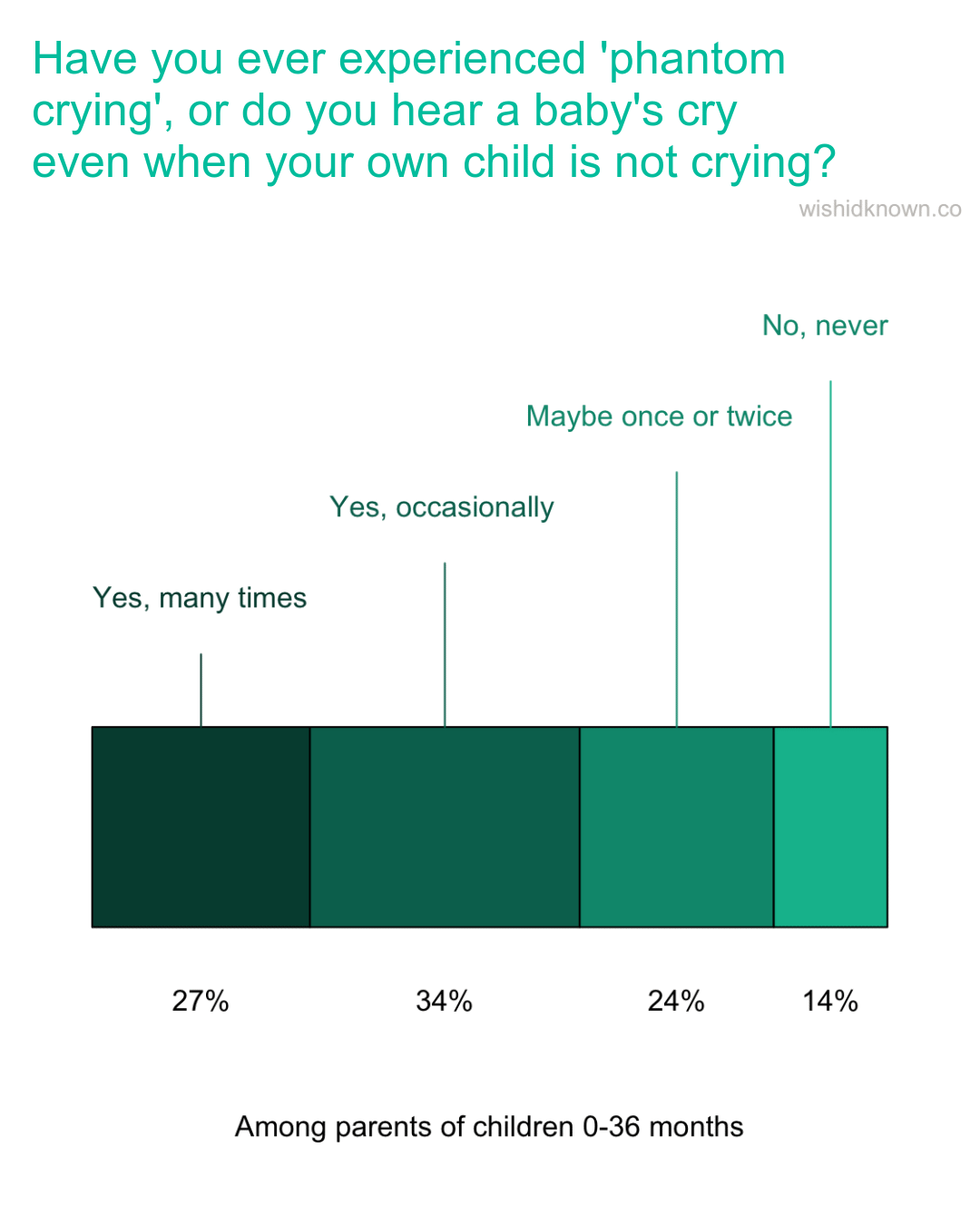
Then there’s 'intrusive thoughts'. This might mean different things to different people. The most common perception from our community was imagining their baby coming to harm or them accidentally causing harm. For context, the NHS defines 'intrusive thoughts' as unwelcome, involuntary thoughts, images or unpleasant ideas that may become obsessions, are upsetting or distressing, and can be difficult to manage or eliminate. We found that over half of parents felt unprepared and uninformed about intrusive thoughts, highlighting the need for more pre-birth education and open conversations about the topic.
While intrusive thoughts are very common, it's important to distinguish between fleeting thoughts and those that start to interfere with your daily life. If you find these thoughts are becoming persistent, causing distress, or leading to changes in behaviour, it's crucial to seek professional help. It's always okay to reach out – you’re not alone, and there are resources available to support you through this journey.
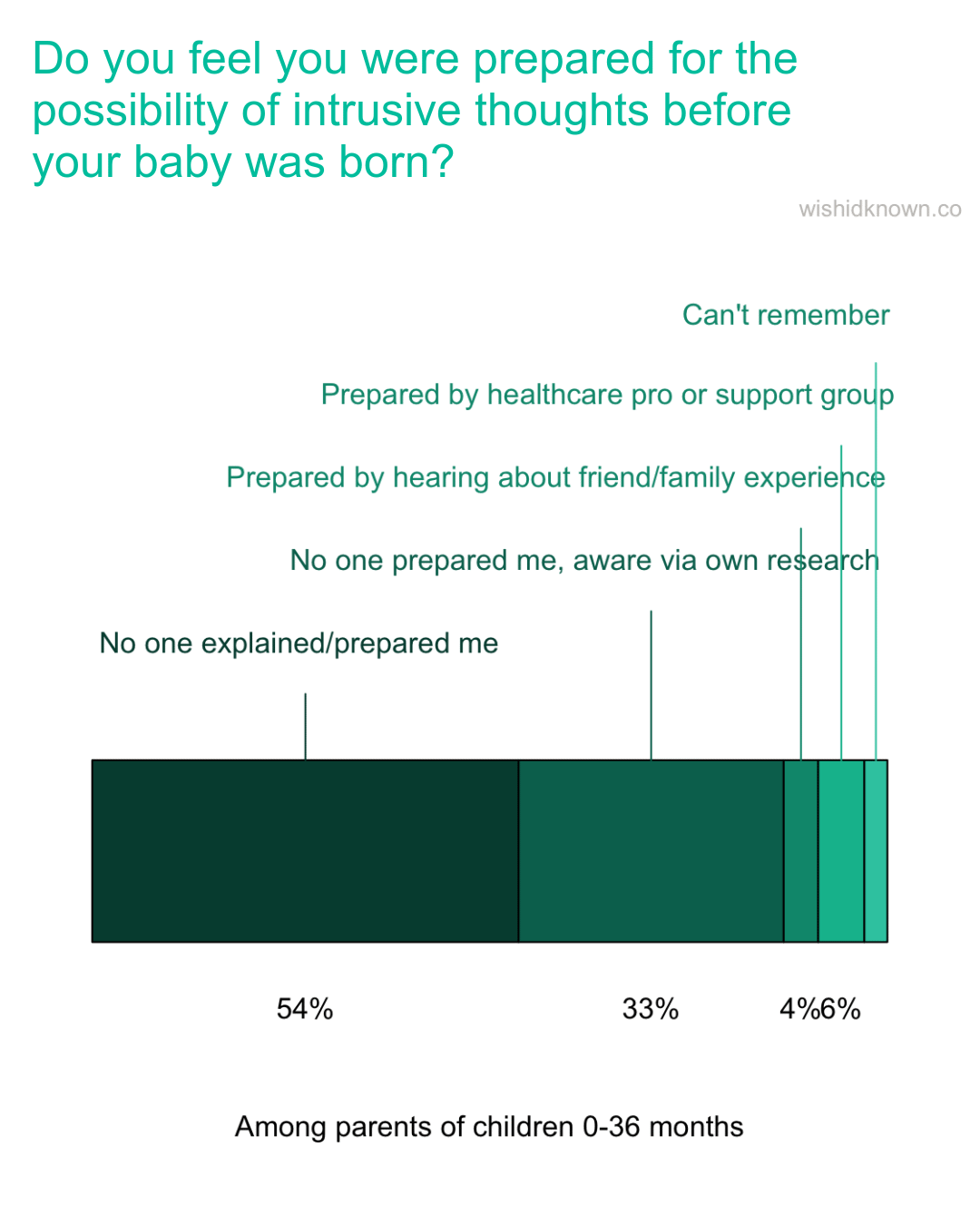
Buckle up…the Fourth Trimester Is Wild
The fourth trimester – the first three months of a baby's life – is full of big emotions, both joyful and challenging. Some common themes we’ve seen as being particularly tough are:
- The lack of routine and predictability, described by one of our community members as being "VERY challenging...but it DOES pass."
- Feeding issues, especially with breastfeeding. As one parent shared, "Breastfeeding did not come easily to either of us and I felt huge guilt." Another noted, "The full responsibility of childcare fell on me as a breastfeeding mother - and not because my partner wasn't willing to help!" Then there are the practical challenges, including leaking breasts and reflux. As one parent said, "So much milk came up it was crazy. Going through 15+ muslins a day." That said, breastfeeding was also incredibly rewarding for many. Government-funded expert advice, breastfeeding groups and breastfeeding friends were sources of support recommended by our community.
- Sleep can put a huge strain on our emotional well-being, with one parent saying, "I thought I knew what I was doing but every time she had a blip in her sleep it really frustrated me, and I ended up questioning myself as a mother." Another shared words of reassurance: "It's ok if your baby does not sleep through or is a 'poor' sleeper. You are not failing."
- Finally, there’s the recovery from childbirth. As one parent shared, "The physical healing, cluster feeds and lack of sleep. Keep going, it gets better! Ask for help", while another encouraged parents to remember "Your healing and health is just as important as theirs".
The overarching advice from parents was to seek support, be kind to oneself, and remember the transient nature of these challenges. The fourth trimester can be a rollercoaster ride, but in the words of several parents, 'This too shall pass". And there is absolutely no shame in seeking help if you need it.
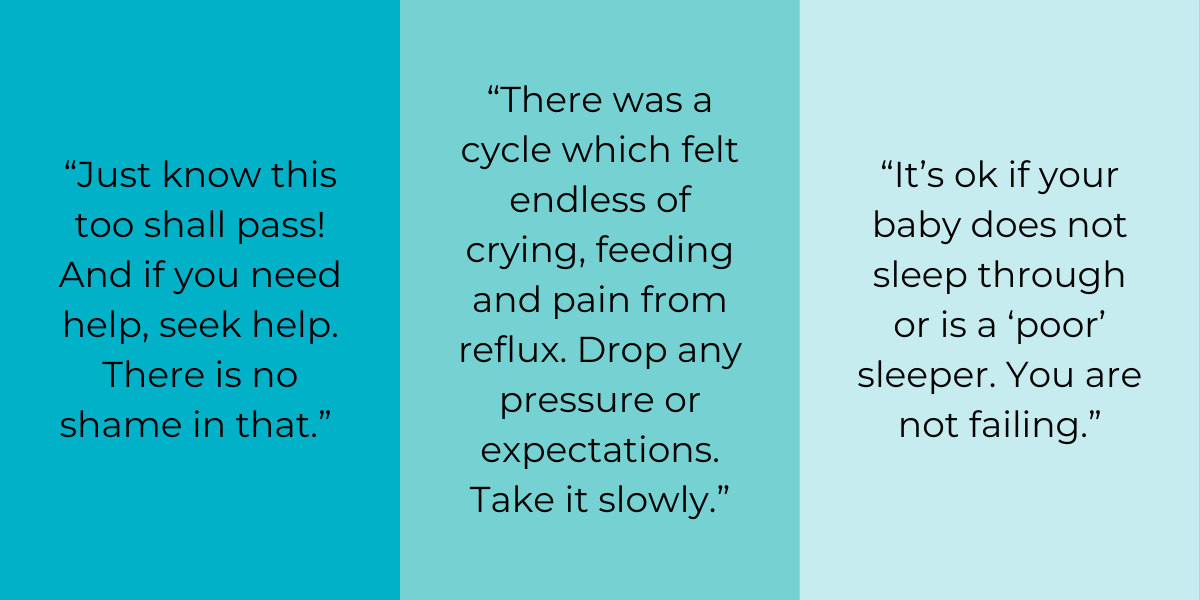
Our mission at Wish I’d Known is to reassure parents and normalise parenting ups and downs. We hope these insights from our community offer comfort and camaraderie.
If you're curious to see more from our free community and add your voice, we’d love it if you joined us! Be part of it at wishidknown.co.
